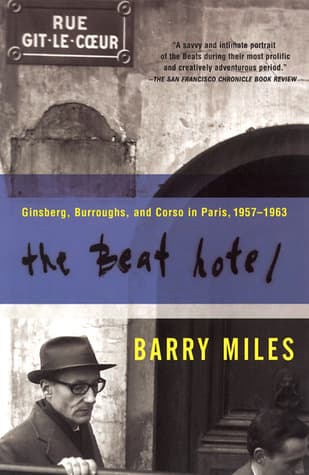
Book Review Summary: The Beat Hotel: Ginsberg, Burroughs and Corso in Paris, 1957-1963
Introduction
"The Beat Hotel: Ginsberg, Burroughs and Corso in Paris, 1957-1963" is a captivating book that delves into the lives of the Beat Generation writers during their time in Paris. Author Barry Miles brings to life the vibrant atmosphere of the city and the creative minds that thrived within it. This book offers a unique perspective on the Beat Generation, shedding light on their relationships, artistic endeavors, and the impact they had on the literary world.
About Barry Miles
Barry Miles, the author of "The Beat Hotel," is a renowned author and biographer. With a focus on musicians and the sixties, Miles has written extensively about influential figures such as Paul McCartney, The Beatles, William Burroughs, Jack Kerouac, Frank Zappa, Charles Bukowski, and Allen Ginsberg. His expertise in the Beat Generation and his ability to bring their stories to life make him the perfect choice for exploring this fascinating era.
Analysis of Views
-
Engaging Narrative: Readers praise Miles's storytelling abilities, noting that he has captured the essence of the Beat Hotel era. The narrative is engaging and provides a vivid picture of the atmosphere and the interactions between the writers.
-
In-depth Research: Many readers appreciate the depth of research that Miles has conducted for this book. He draws upon firsthand accounts, diaries, letters, and original interviews to create an intimate look at the lives of the Beat Generation writers during their time in Paris. This level of detail adds credibility to the story and provides valuable insights into their creative process.
-
Focus on Ginsberg: While some readers feel that Burroughs, Ginsberg, Corso, and other Beat writers did not mix much with French artists of that period, they acknowledge that Miles has effectively portrayed their voices and times. The author's ability to capture the essence of their creative energy and their contributions to literature is widely praised.
-
Bohemian Eden: Readers describe Paris during the Beat Hotel era as a Bohemian Eden, filled with artistic expression, experimentation, and a sense of freedom. Miles's descriptions transport readers back to this time and evoke a sense of nostalgia for a bygone era.
-
Typos and Editorial Goofs: Some readers note that there are typos and editorial goofs throughout the book. While these errors do not detract significantly from the overall reading experience, they do detract from the polished appearance of the book. A few readers suggest that an index would have been helpful to navigate through the text more efficiently.
Reasons for Recommendation
-
Engaging Storytelling: Miles's engaging narrative style captures the essence of the Beat Hotel era and brings it to life for readers. His ability to weave together personal accounts and historical context creates a compelling story that resonates with fans of the Beat Generation.
-
In-depth Research: The thorough research conducted by Miles adds credibility to the book and provides readers with valuable insights into the lives of the Beat Generation writers. The inclusion of firsthand accounts and original interviews adds depth to the narrative and enhances readers' understanding of this era.
-
Portrayal of Ginsberg: Despite some readers' concerns about the lack of interaction between American writers and French artists during this period, Miles's portrayal of Allen Ginsberg as a central figure in the Beat movement is widely praised. His dedication to encouraging his friends in their creative endeavors and promoting the Beat gospel of liberation is highlighted as a significant contribution to literature.
Reasons for Not Recommendation
-
Limited French Interaction: Some readers feel that Miles does not adequately explore interactions between American writers and French artists during this period. While acknowledging Ginsberg's central role in the movement, they wish for more exploration of his relationships with French literary figures like Camus, Sartre, Cocteau, and others.
-
Typos and Editorial Goofs: A few readers mention typos and editorial errors throughout the book, which can be distracting for some readers. While these errors do not detract significantly from the overall reading experience, they may be a concern for those seeking a more polished reading experience.
Conclusion
"The Beat Hotel: Ginsberg, Burroughs and Corso in Paris, 1957-1963" by Barry Miles is a captivating book that explores a remarkable moment in American literary history. Through engaging storytelling and thorough research, Miles brings to life the creative energy and contributions of the Beat Generation writers during their time in Paris. While some readers express concerns about limited interactions with French artists and editorial errors, overall, this book is highly recommended for fans of the Beat Generation and those interested in exploring the impact of this literary movement on American literature.